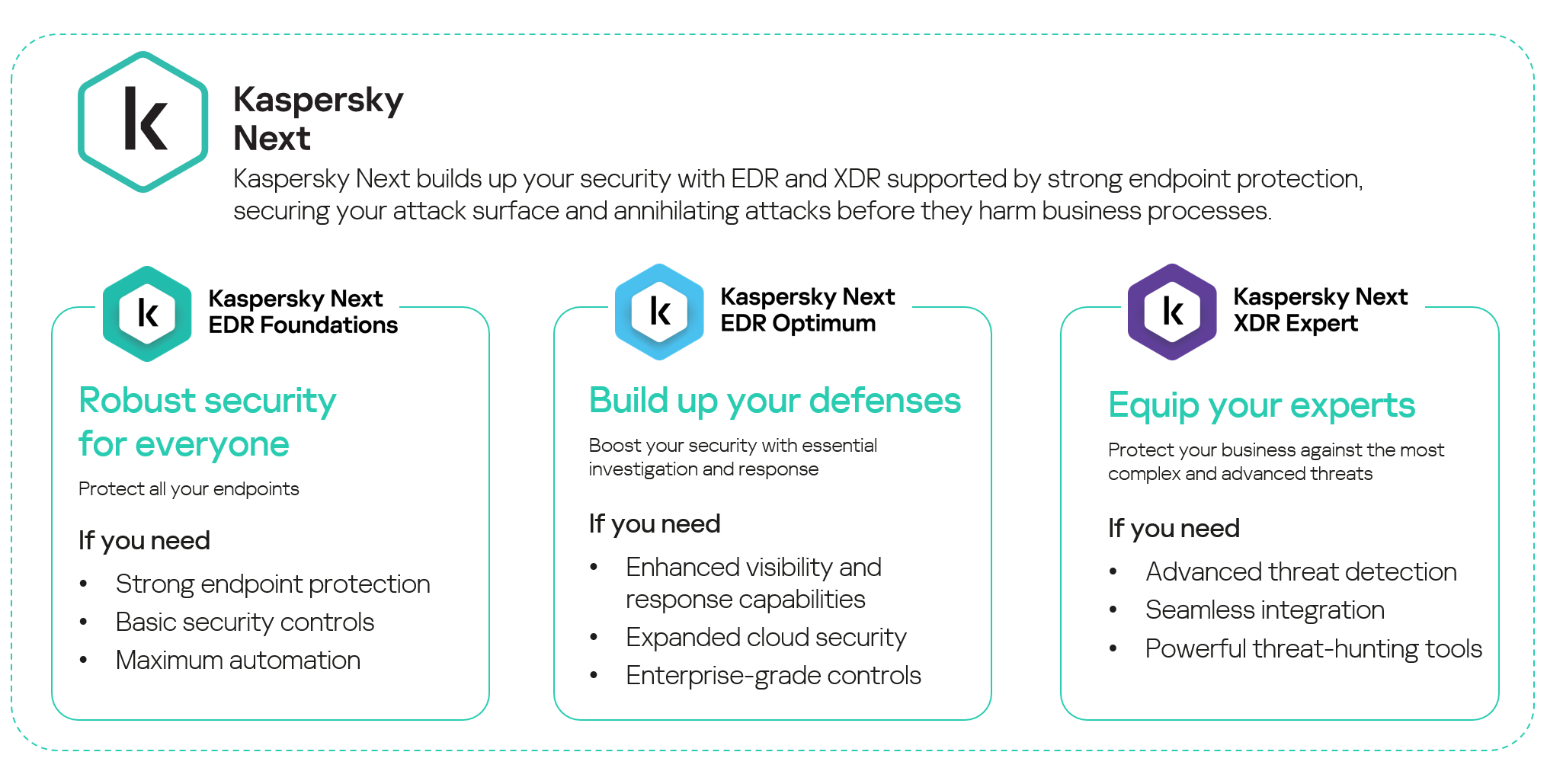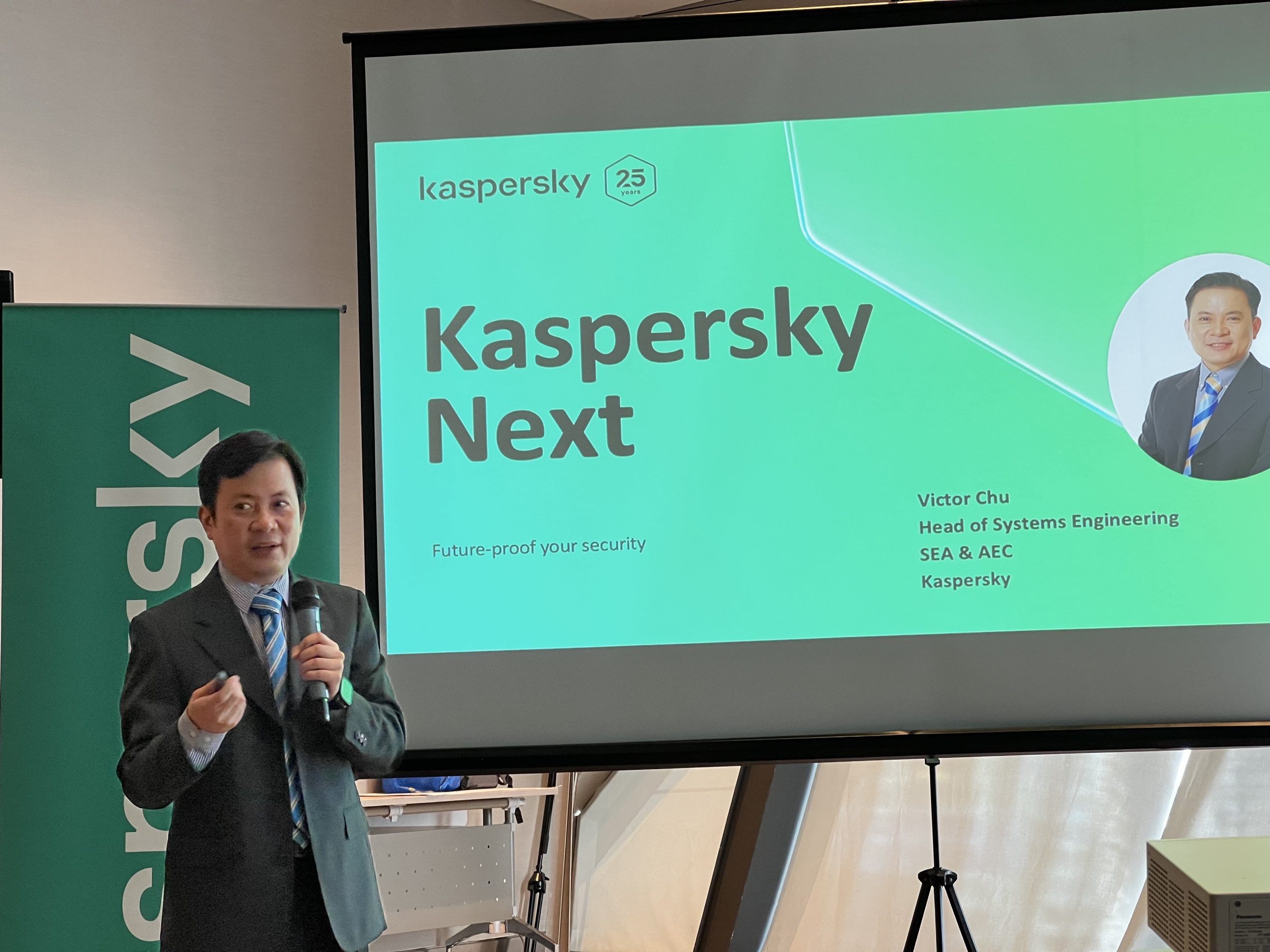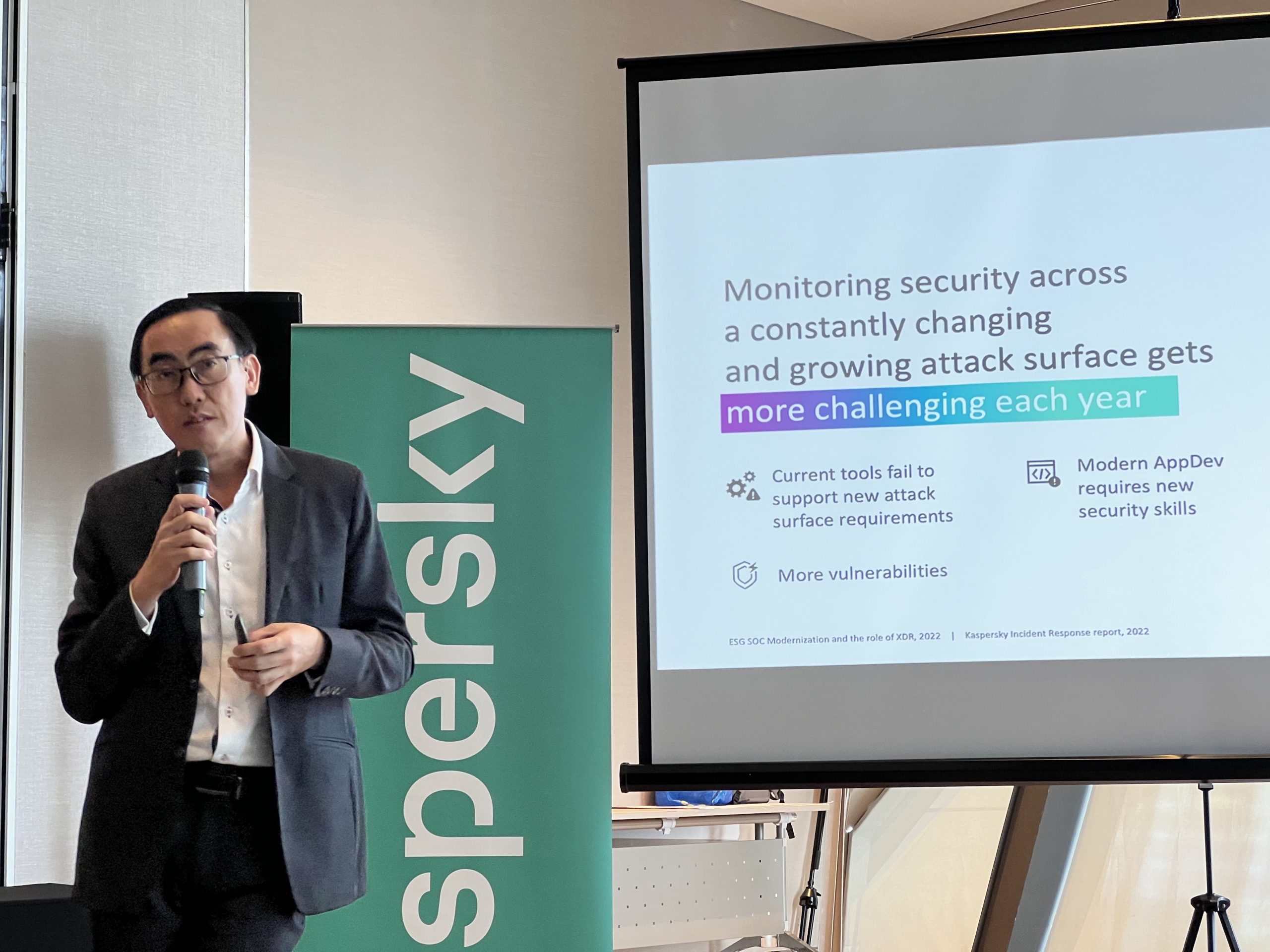Kaspersky Next Launches Under the Shadow of Geopolitical Tensions

Earlier this week, Cyber Security Asia (CSA) was invited to witness the launch of Kaspersky’s brand-new product line, Kaspersky Next. This unveiling comes at a particularly interesting juncture for the cybersecurity industry. Just recently, the US government took a firm stance against Kaspersky Lab, implementing sanctions not only on the company itself but also on its top executives. This escalation stemmed from long-held concerns regarding potential national security risks tied to Kaspersky’s Russian roots.
Despite this backdrop, Kaspersky has forged ahead with the introduction of Kaspersky Next. Company representatives emphasised that this suite goes beyond traditional endpoint protection, incorporating the speed and transparency of EDR (Endpoint Detection and Response) alongside the extensive visibility and powerful tools of XDR (Extended Detection and Response). Offered in three distinct tiers, Kaspersky Next caters to the diverse needs of businesses based on their IT infrastructure complexity and available resources.
Kaspersky Next: Combining EDR and XDR in One Platform
According to the Cyber Incident Quarterly Summary Report by the Malaysia Computer Emergency Response Team (MyCERT) and CyberSecurity Malaysia, the number of cyber incidents reported in Q1 2024 saw a slight increase compared to Q4 2023, with fraudulent activities, data breaches, and attempted intrusions being the most common. This rise in cyber threats underscores the need for robust cybersecurity solutions, making the launch of Kaspersky Next particularly timely.
Kaspersky Next is designed to offer businesses a comprehensive cybersecurity framework that addresses the most pressing threats today. As previously mentioned, the product line includes three tiers:

- Kaspersky Next EDR Foundations: This tier provides powerful endpoint protection, identifying and neutralising threats before they can disrupt business processes. It features flexible security controls and built-in IT scenarios, allowing for hands-off operation and customisation of security policies. This solution is ideal for companies where IT departments handle information security.
- Kaspersky Next EDR Optimum: Offering strong endpoint protection with essential EDR functionality, this tier includes advanced controls, patch management, and cloud security. It provides threat visibility, investigation, and response capabilities to help businesses quickly deflect attacks with minimal resources. This solution is suited for companies with small information security teams.
- Kaspersky Next XDR Expert: The most advanced tier, this solution aggregates, analyses, and correlates data from various sources across an organisation’s IT infrastructure. It delivers real-time visibility and deep insights into evolving cyber risks, enabling advanced threat detection and automated response. This tier can integrate with third-party vendors and is recommended for companies with experienced cybersecurity teams or Security Operations Centres (SOC).
Kaspersky stated that their Kaspersky Next is deployment-agnostic, supporting both cloud and on-premises installations. The platform offers two management consoles: A streamlined console for quick core cybersecurity tasks and an enterprise-grade console with granular controls and advanced monitoring. The new product line aims to reduce the burden on cybersecurity teams by automating routine tasks, such as cloud monitoring and blocking, vulnerability and patch management, and Indicators of Compromise (IoC) scans.
The launch of Kaspersky Next also coincides with Malaysia’s digital transformation. The country’s Digital Minister recently highlighted Malaysia’s strategic position to capitalise on the AI boom and become the premier data centre hub in ASEAN. As Malaysia accelerates its technology adoption, it faces the dual challenge of leveraging new opportunities while mitigating associated cyber risks.
Victor Chu, Head of System Engineering for Southeast Asia at Kaspersky, emphasises the importance of robust cybersecurity defences in this rapidly evolving landscape as Malaysians embrace the digital age.

Can Kaspersky Next Navigate Geopolitical Storms?
While Kaspersky’s launch of its new flagship product line, Kaspersky Next represents a significant step forward in the company’s efforts to provide comprehensive cybersecurity solutions to businesses, the backdrop of US sanctions might pose some challenges that Kaspersky must tread carefully.
Without a doubt, the recent escalation stems from long-held US concerns about potential national security risks associated with Kaspersky’s Russian ties.
The US alleges that Kaspersky’s software, with its deep access to user systems, could be exploited by the Russian government for nation-related threats which include, not entirely, spying and data exploitations. Kaspersky vehemently rejects these claims, however, maintaining their commitment to user security and privacy. The sanction follows an earlier US decision in April to ban the sale of Kaspersky software within the US after July 2024. The latest action suggests a heightened level of US anxiety regarding potential vulnerabilities in Kaspersky’s technology.
Whether the allegations are true or not, these sanctions highlight the broader geopolitical complexities in the cybersecurity industry and the need for companies like Kaspersky to be more transparent and demonstrate their reliability.
This isn’t the first time Kaspersky has faced scrutiny, particularly from the US. Over the years, the company has definitely taken proactive steps to address these concerns and promote transparency. Kaspersky’s robust network of Transparency Centres, currently operating in twelve locations worldwide including Istanbul, Kuala Lumpur, and Singapore, exemplifies this commitment. These centres allow independent experts to scrutinise Kaspersky’s code, infrastructure, and data handling practices. This level of transparency is a strong statement, as few other cybersecurity providers have undertaken such a far-reaching initiative.
As Kaspersky moves forward, maintaining trust, demonstrating transparency, and delivering effective cybersecurity solutions will be critical to its success.
Yeo Siang Tiong, General Manager for Southeast Asia at Kaspersky, emphasises, “Our ultimate goal is to empower companies to construct dependable and efficient information security systems that meet their unique cybersecurity needs.”





